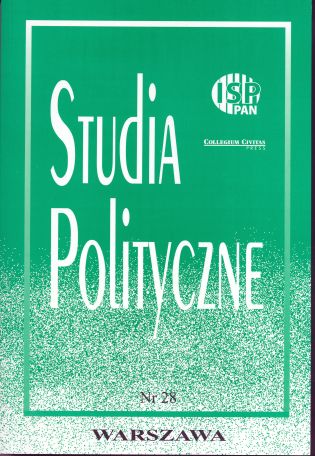Odmiany zinstytucjonalizowanego populizmu i eurosceptycyzmu w Polsce: o sukcesie Samoobrony i Ligi Polskich Rodzin w pierwszej dekadzie XXI wieku
Variants of institutionalised populism and euroscepticism in Poland. On the success of ‘Self-Defence’ and the ‘Polish Families’ League’ in the first d
Author(s): Joshua A. Tucker, Radosław MarkowskiSubject(s): Politics / Political Sciences
Published by: Instytut Studiów Politycznych PAN
Summary/Abstract: One of the more interesting phenomena of the period of the referendum on Poland’s accession to the European Union, in 2003, was the strong correlation between voting ‘for’ or ‘against’ membership of the EU and voting in the previous Parliamentary election, in 2001. The article, which refers to this observed phenomenon, verifies two competing hypotheses regarding the formation of new political parties on the precise occasion of Poland’s accession to the UE and, to a degree, because of it. The first assumes that the voters’ attitudes toward the European Union were shaped by the parties they identified with. The second suggests that, at the dawn of the new Millennium, a Eurosceptic electorate existed in Poland which was not represented by the mainstream parties of the Polish party system, This is why, with the referendum pending, the new parties made use of the fact to acquire new, hitherto unrepresented voters and it is to this strategy that they owe their then success.
Journal: Studia Polityczne
- Issue Year: 2011
- Issue No: 28
- Page Range: 29-59
- Page Count: 31
- Language: Polish

